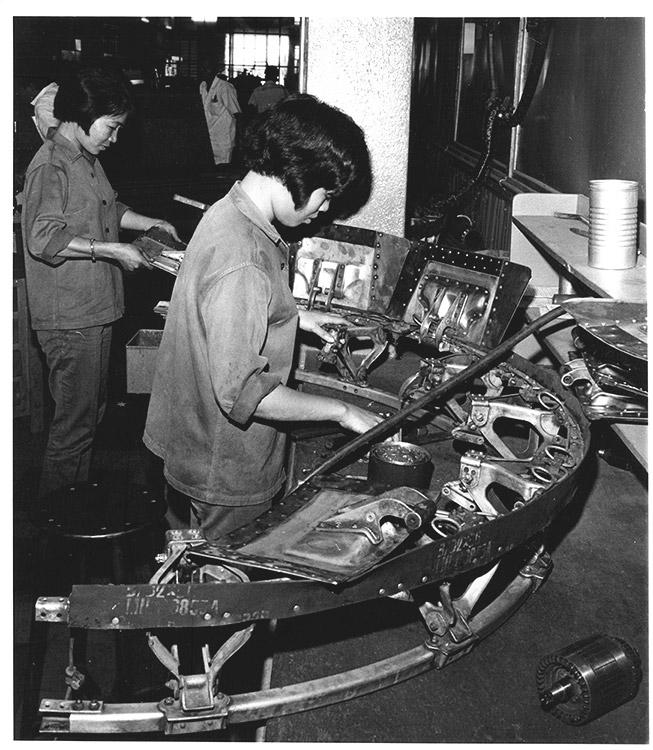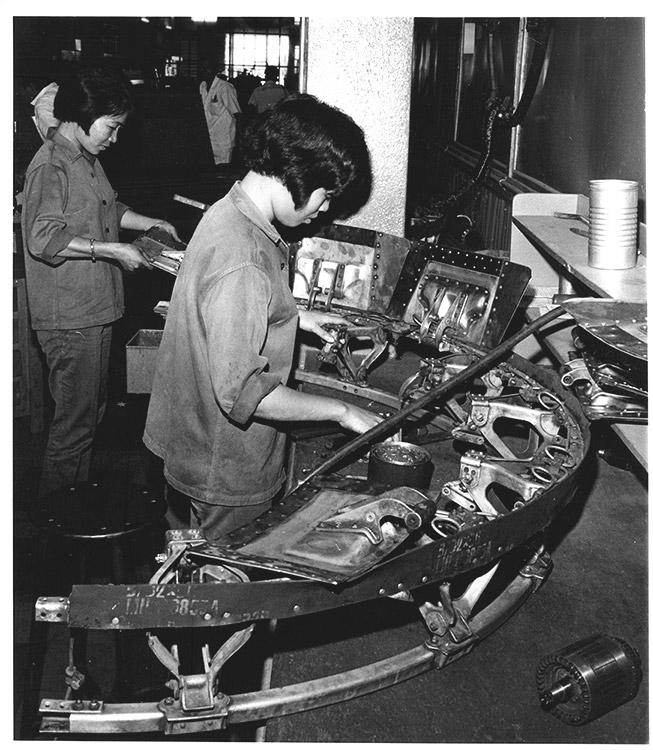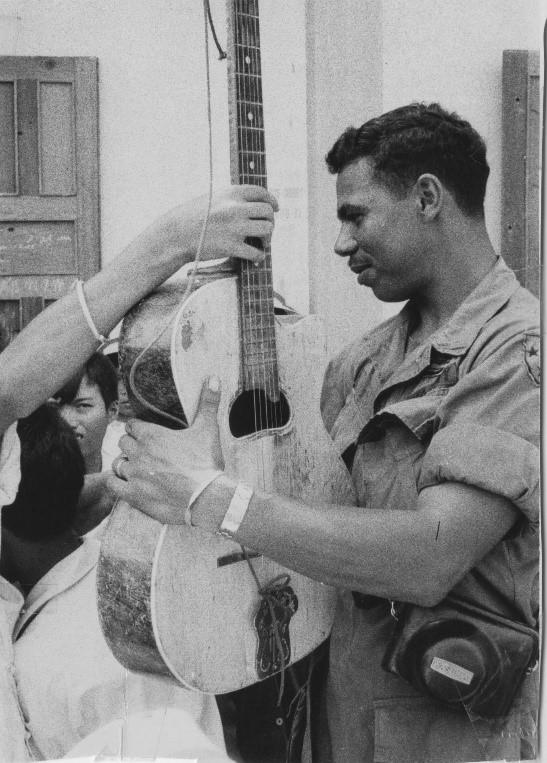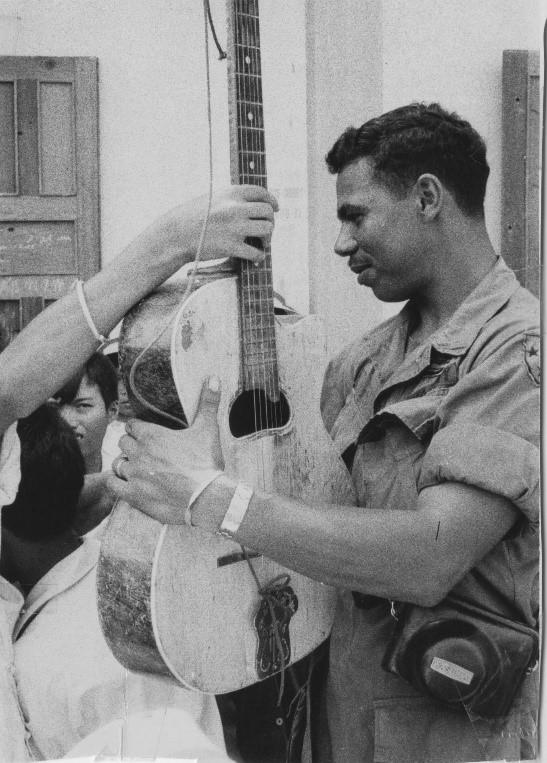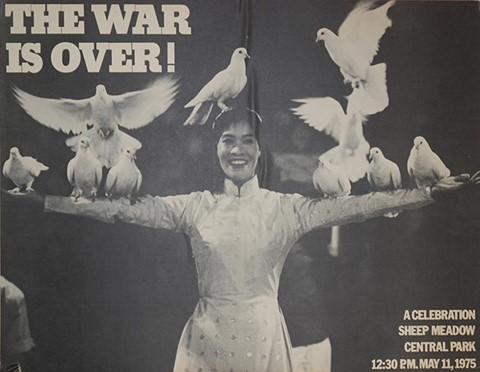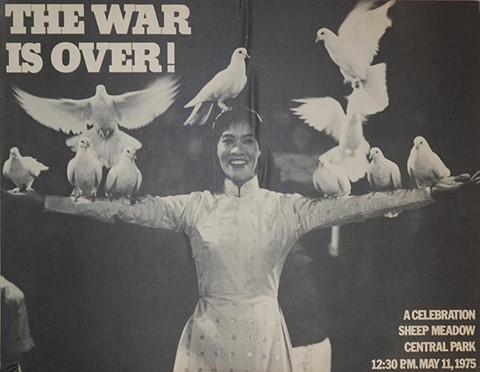Voices of the Vietnam War
The Oral History Project of the Vietnam Center and Sam Johnson Vietnam Archive (VNCA) at Texas Tech University has been conducting and collecting oral history interviews with the Vietnam generation since 1999. The Oral History Project’s collection contains more than 1,100 oral history interviews, all of which are available to the public through the Virtual Vietnam Archive (VVA), a searchable online portal that boasts approximately 900,000 database records. The VVA preserves history that might otherwise be lost for posterity. Combat troops, support troops, medical professionals, volunteers, and families of veterans lend their voices to depict their early formative life experiences, military service, impressions of the war before and after deployment, views on U.S. military and foreign policy since the Vietnam War, as well as the effects of the war on themselves, their relationships, and their environments.
After interviews are completed, they are initially available online as audio only. Written transcripts, however, convey them to a wider audience. Transcripts appeal to visual learners, provide access to hearing impaired individuals, and act as metadata that facilitate patrons’ discoveries. Texas Tech University received a Humanities Collections and Resources: Implementation grant to produce full transcripts for its backlog—approximately 200 oral history interviews that span more than 700 hours of audio and video material.
Of the transcription backlog, fifty-two were video interviews with veterans of the Battle of the Ia Drang Valley, the first face-to-face combat between U.S. and North Vietnamese forces. The remainder of the interviews represent military couples, a recipient of the Congressional Medal of Honor, South Vietnamese civilians, journalists, protestors, and others involved in the conflict in diverse capacities. These recollections surpass the standard military documentation of combat, exposing members of the public to firsthand wartime accounts and veterans to each other’s intimate experiences. Family members of participants also gained insight into the complexities of the war; many stated they had never heard the stories recounted in their loved ones’ interviews.
In an interview conducted in 2009, John J. Baker recalls enlisting in the Air Force after graduating from Marist College. Just five days into basic training, he received his duty assignment: teaching English in Vietnam to the South Vietnamese military. An interview from 2004 introduces Colleen Mussolino, a member of the Women’s Army Corps and later the co-founder of the Women Veterans of America in 1988. Others detail conversations with Michael Ingham, a conscientious objector to the Vietnam War and former U.S. Ambassador to the United Nations Sichan Siv.
In the first year of the grant period, the VNCA team, which included student transcriptionists and editors, generated 111 first draft transcripts. COVID-19 interrupted their work and necessitated new workflows in the following two years, but VNCA staff and student employees exceeded their original goal, finishing with 201 transcripts edited and posted online while the center continued to collect 50-60 new interviews per year. Since publication, these transcripts have already appeared in searches 16,114 times and been downloaded 10,379 times. Every year, more visitors explore the archive’s memories of heroism and tragedy, humor and loss, success and struggle—realities that shape our nation’s past as much as its future. Through these digital records, along with individualized CDs sent to participating veterans and their families, the VNCA safeguards personal stories that will enrich our understanding of war’s impacts on humanity for generations to come.
Dana Blatte, an undergraduate studying cultural anthropology and creative writing at Hamilton College, is an intern in the NEH Division of Preservation and Access during the summer of 2023.
